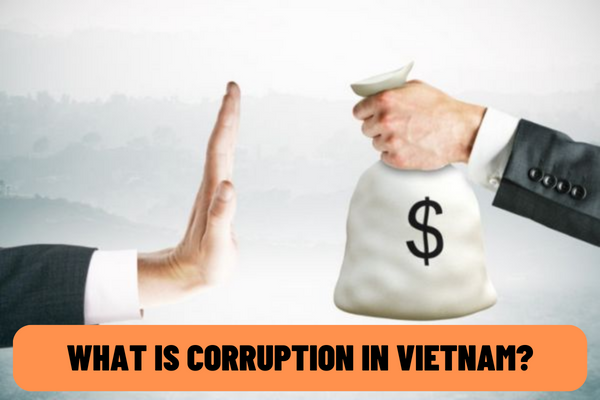What is the acts of corruption in Vietnam? How to dispose of gifts in anti-corruption?
What are the acts of corruption in Vietnam?
Corruption is an act of an office holder who takes advantage of that position or power for personal gain.
Clause 2, Article 3 of the 2018 Law on Anti-corruption in Vietnam provides the following:
Definitions
For the purposes of this Law, the terms below are construed as follows:
…
2. “office holder” means a person that is designated, elected or employed under a contract or another form of employment, receiving or not receiving salaries, assigned certain duties and authority to perform such duties. Office holders include:
a) Officials and public employees;
b) Commissioned officers, career military personnel, national defense workers and public employees of the People’s Army units; commissioned officers, non-commissioned officers and workers of the People’s Police units;
c) Representatives of state investment in enterprises;
d) Holders of managerial positions in organizations;
dd) Other persons assigned certain duties and authority to perform such duties.
….
Thus, it can be understood that corruption acts are acts of office holders who are designated, elected or employed under a contract or another form of employment taking advantage of their positions and powers for personal gain.

What is the acts of corruption in Vietnam? How to dispose of gifts in anti-corruption? (Image from the Internet)
What are the acts of corruption in state organizations and non-state organizations?
Article 2 of the 2018 Law on Anti-corruption in Vietnam provides for the acts of corruption as follows:
Acts of corruption
1. Acts of corruption committed by office holders in state organizations include:
a) Embezzlement;
b) Taking bribes;
c) Abuse of one’s position or power for illegal appropriation of assets;
d) Abuse of official capacity during performance of tasks or official duties (hereinafter referred to as “duties”) for personal gain;
dd) Acting beyond authority in performance of one’s duties for personal gain;
e) Abuse of official capacity to influence another person for personal gain
g) Impersonation for personal gain;
h) Bribing or brokering bribery for taking advantage of one’s influence over a state organization or for personal gain;
i) Illegal use of public assets for personal gain by abuse of official capacity;
k) Harassment for personal gain;
l) Failure to perform or correctly perform one’s duties for personal gain;
m) Abuse of official capacity to screen violations of law for person gain; illegally intervening or obstructing supervision, inspection, audit, investigation, prosecution, adjudication or judgment enforcement for personal gain.
2. Acts of corruption committed by office holders in non-state organizations include:
a) Embezzlement;
b) Taking bribes;
c) Bribing or brokering bribery for taking advantage of one’s influence over the operation of the enterprise or organization, or for personal gain.
How to dispose of gifts in accordance with anti-corruption regulations?
In Article 27 of Decree No. 59/2019/ND-CP on disposal of gifts as follows:
Disposal of gifts
1. If the gifts are cash or financial instruments, the heads of agencies, organizations or units must take over, preserve and turn it in the government budget as per law.
2. If the gifts are goods or products, the heads of agencies, organizations or units must take over, preserve and proceed to:
a) Determine the price of the gifts based on the price provided by the giver (if any) or the price of similar products on the market. If the price of the gifts cannot be determined, the competent agencies may be required to evaluate the price;
b) Decide to sell and publicly sell the gifts as per law;
c) After taking into account the cost of disposal, the proceeds minus cost will be transferred to the government budget within 30 days from the day on which the gifts are sold.
3. If the gifts are services such as domestic or overseas sightseeing, travel, medical, education and training, internship, practice and other services, the heads of the agencies, organizations or units must inform the corresponding service providers of not using the gifted services.
4. If the gifts are animals, plants, raw or fresh food and other products difficult to preserve, the heads of the agencies, organizations or units based on the current situation and comply with regulations and law on handling confiscated material evidence in administrative sanctions to handle the gifts within their competence or report to the competent agencies for further consideration and solutions.
5. Within 05 working days from the day on which the gifts are disposed, the agencies, organizations or units in charge of disposing the gifts must submit reports to the superiors of the agencies, organizations, units or individuals who presented the gifts for further consideration and solutions within their competence.
Thus, when receiving gifts, the heads of agencies, organizations or units must take over and dispose of the gifts according to the above provisions.
LawNet